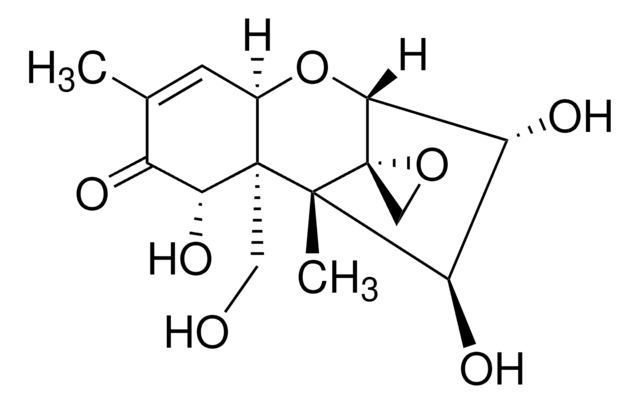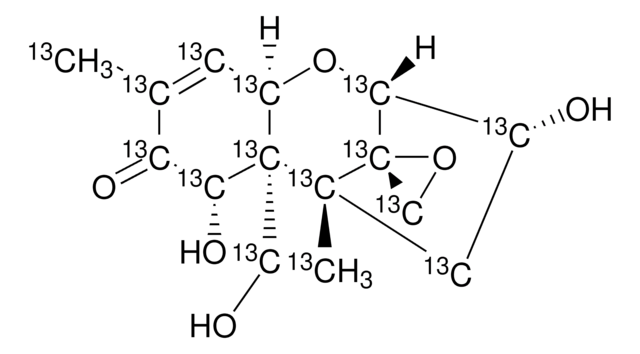34135
Deepoxy-deoxynivalenol solution
~50 μg/mL in acetonitrile, analytical standard
Synonym(s):
3α,7α,15-Trihydroxy-trichothec-9,12-dien-8-one solution, DOM-1
About This Item
Recommended Products
grade
analytical standard
Quality Level
shelf life
limited shelf life, expiry date on the label
concentration
~50 μg/mL in acetonitrile
technique(s)
HPLC: suitable
gas chromatography (GC): suitable
application(s)
cleaning products
cosmetics
food and beverages
personal care
format
single component solution
storage temp.
−20°C
SMILES string
CC1=C[C@H]2O[C@@H]3[C@H](O)C[C@@](C)(C3=C)[C@@]2(CO)[C@H](O)C1=O
InChI
1S/C15H20O5/c1-7-4-10-15(6-16,13(19)11(7)18)14(3)5-9(17)12(20-10)8(14)2/h4,9-10,12-13,16-17,19H,2,5-6H2,1,3H3/t9-,10-,12+,13-,14+,15-/m1/s1
InChI key
ZACLXWTWERGCLX-MDUHGFIHSA-N
General description
Application
Analysis Note
Signal Word
Danger
Hazard Statements
Precautionary Statements
Hazard Classifications
Acute Tox. 4 Dermal - Acute Tox. 4 Inhalation - Acute Tox. 4 Oral - Eye Irrit. 2 - Flam. Liq. 2
Storage Class Code
3 - Flammable liquids
WGK
WGK 2
Flash Point(F)
35.6 °F
Flash Point(C)
2 °C
Personal Protective Equipment
Choose from one of the most recent versions:
Already Own This Product?
Find documentation for the products that you have recently purchased in the Document Library.
Customers Also Viewed
Our team of scientists has experience in all areas of research including Life Science, Material Science, Chemical Synthesis, Chromatography, Analytical and many others.
Contact Technical Service












